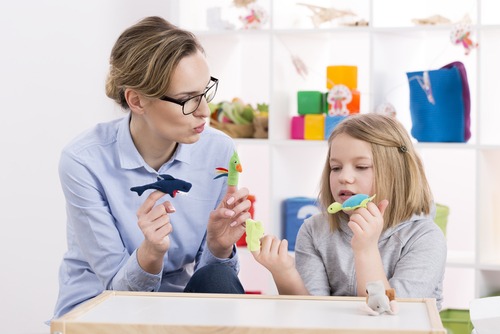Play Therapy
What is play therapy?


How play therapy helps
Play is a fun, enjoyable activity that elevates our spirits and brightens our outlook on life. It expands self-expression, self- knowledge, self-actualization and self-efficacy. Play relieves feelings of stress and boredom, connects us to people in a positive way, stimulates creative thinking and exploration, regulates our emotions, and boosts our ego (Landreth, 2002). In addition, play allows us to practice skills and roles needed for survival.
Children are referred for play therapy to resolve their problems (Carmichael; 2006; Schaefer, 1993). Often, children have used up their own problem solving tools, and they misbehave, may act out at home, with friends, and at school (Landreth, 2002). Play therapy allows trained mental health practitioners who specialize in play therapy, to assess and understand children’s play. Further, play therapy is utilized to help children cope with difficult emotions and find solutions to problems.
FAQs
Ms. Brown will discuss this at the intake interview with the parent/parents. Each child is unique and requires a special response for this question. She also provides handouts and brochures to insure you are comfortable responding to questions your child may have.
Ms. Brown meets with parents at feedback sessions throughout the process. She is available to provide assistance when issues arise between sessions. You can also meet briefly with her before a child’s session, if necessary.
Please allow your child to tell you as little or as much they would like about their time in the playroom. It is not helpful to ask questions about the sessions, this can make the child uncomfortable. There may be times when a session is emotionally difficult for your child, this may lead to an increase in difficult behaviors. This is normal and can be expected as they process through the issues that are concerning them. You can contact Ms. Brown to discuss strategies if you are concerned.
There are toys, paint, clay, playdoh, and sand in the playroom. Things can get messy, so please dress your child in clothes that can be soiled without any concerns.
Additional Information
Andrew’s Day: Video
Play is a child’s first language. When a child plays they express thoughts and feelings that would otherwise remain hidden. That’s why play therapy is such a powerful tool to address a child’s behavioral and emotional challenges.
Why Choose a Registered Play Therapist?
There is another credential that play therapists in the United States can achieve called the Registered Play Therapist (RPT). This credential is provided through the Association for Play Therapy. It requires the play therapist to have at least a master’s degree and license in a mental health field, to complete a substantial amount of play therapy training, to have extensive clinical experience, and to have received play therapy supervision.

